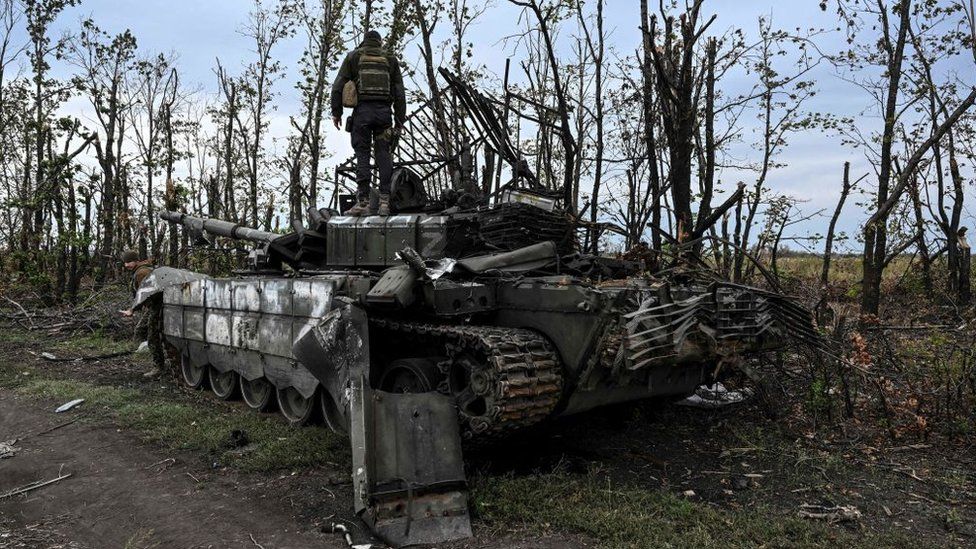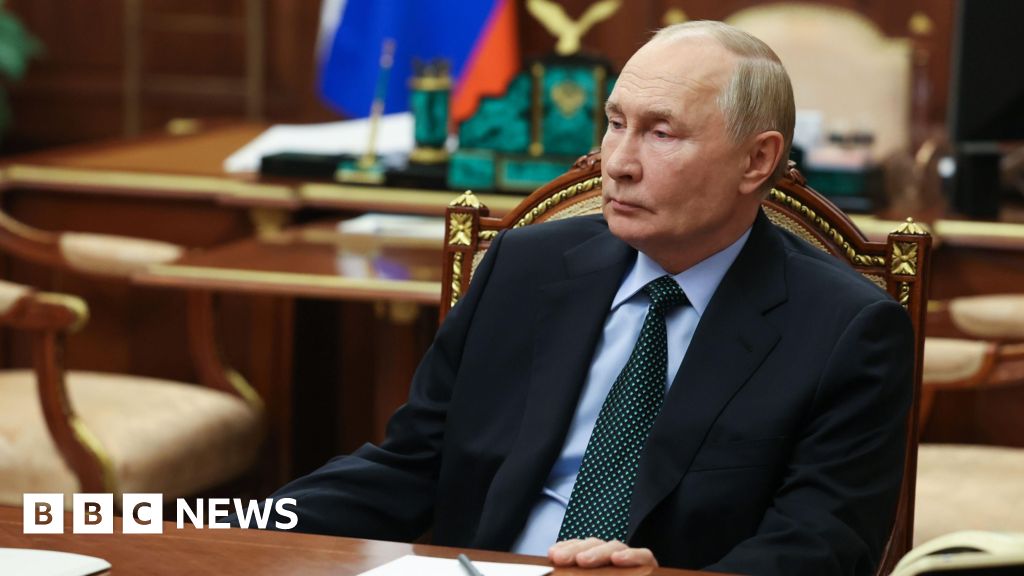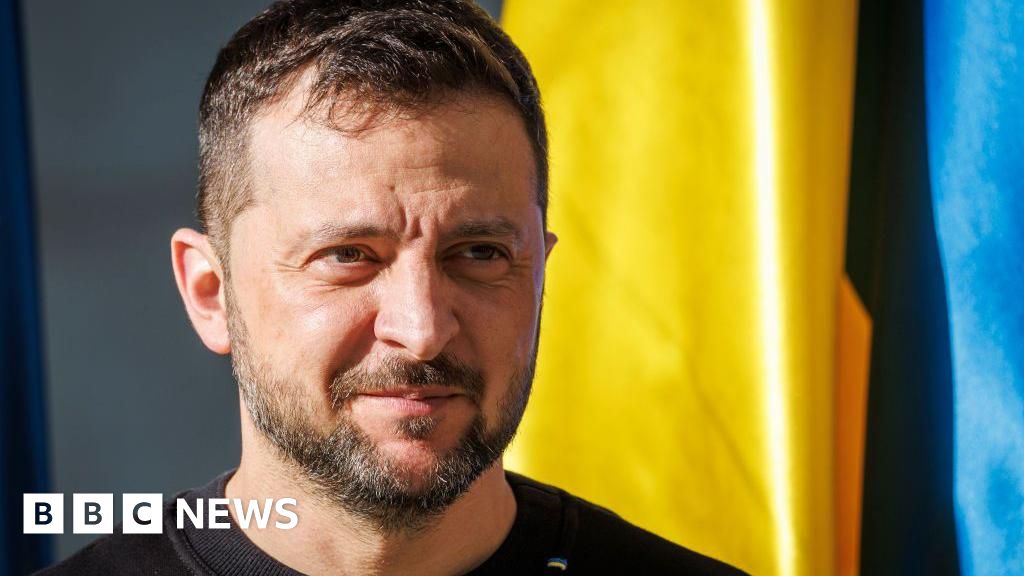ARTICLE AD BOX
 Image source, Getty Images
Image source, Getty Images
Ukrainian forces are claiming further success in their counter-offensive in the northeast Kharkiv region
Monday saw Ukraine pressing on with a counter-offensive in which its forces have retaken swathes of territory in the north-east of the country.
In its latest update, Ukraine's army said it had taken back 20 villages in the past 24 hours alone in the Kharkiv region, adding to its claimed gains of more than 3,000 sq km (1,158 sq miles).
But the day also saw defiance from the Kremlin, which insisted that Russia's war would continue until all its goals were met, despite the dramatic military reverses of the past week.
Vladimir Putin's spokesman Dmitry Peskov said the president was in constant communication with his military commanders.
But he sidestepped a question on whether Mr Putin still had confidence in his generals, and would not comment on reports that the commander of the Western Military District had been sacked.
Meanwhile, the mayor of Ukraine's second city, Kharkiv, said electricity and water supplies had again been cut off due to Russian strikes on critical infrastructure. Similar attacks on Sunday damaged a power plant and caused blackouts.
Mayor Ihor Terekhov suggested the attacks were a vile and cynical attempt at revenge for the Ukrainian army's successes.
What will Russia's losses mean for Putin?
Image source, Reuters
Image caption,After six months of war, it is still unknown what the Russian president will do next
You can normally expect Russian state TV's flagship weekly news programme to trumpet Kremlin successes. But Sunday's edition opened with a rare admission, says the BBC's Russia editor, Steve Rosenberg.
"On the frontlines of the special operation [in Ukraine], this has been the toughest week so far," declared sombre-looking anchor Dmitry Kiselev.
"It was particularly tough along the Kharkiv front, where following an onslaught by enemy forces that outnumbered ours, [Russian] troops were forced to leave towns they had previously liberated."
So will this have political consequences for Vladimir Putin?
The last six months suggest that President Putin's decision to invade Ukraine was a major miscalculation, our editor says. Unable to secure a rapid victory, Russia got bogged down in a long, bloody offensive, and has suffered a series of embarrassing defeats.
Vladimir Putin will know Russia's history. It hasn't ended well for past Russian leaders who fought wars and didn't win them.
You can read Steve Rosenberg's full analysis here.
A successful surprise attack - but danger still looms
Image source, Reuters
Image caption,The Ukrainian military has released these pictures of destroyed Russian tanks in a river
Jonathan Beale, the BBC's defence correspondent, has been examining what Ukraine's recent gains mean for the wider conflict.
Ukraine's ability to surprise has become a hallmark of this war, our correspondent says.
Until now, it was Russia making most of the advances - albeit a slow and grinding affair that was proving costly to its army. Now it's Ukraine making the gains, taking back thousands of square miles of territory in just a matter of days.
It's clear it successfully wrong-footed Russia. Over the past few months, Russia's been redeploying forces from the east to bolster its defences in the south. Both fronts are now vulnerable.
But Ukraine is finding it harder to make gains in the south where they're more exposed, having to fight in mostly open countryside.
Read the full analysis here.
Russians retreat in the east
During the weekend, Ukraine's counter-attack forced Russian troops into a rapid retreat in the Kharkiv region.
The Institute for the Study of War called it a "major operational defeat" on Russian forces, while British defence officials say the Ukrainian army's successes will have "significant implications" for Russia's overall operational design.
Many analysts argue that Russian forces had left key positions exposed, sending too many troops to the Kherson area in the south, where they face another Ukrainian counter-offensive.
The towns of Izyum and Kupiansk - both retaken on Saturday - were major logistical hubs for Russian forces in the Donbas.
Shock and joy in newly liberated villages
Natalia, 50, lived under Russian occupation for five months
Natalia is one of many people who welcomed Ukrainian troops as they took back terrain previously conquered by the Russians.
She farmed there in peace and quiet until the Russians arrived on 29 March. What they did not destroy, they stole, she says, including forks and spoons, and the shoes from a pensioner's feet.
"They were a rabble," she tells me, wringing her hands as she relives her trauma.
Freedom finally came on 2 September.
"When our armed forces arrived, we were in the basement," says the 50-year-old. "They asked, in Ukrainian, 'is anyone alive?' and I realised they were ours.

 2 years ago
34
2 years ago
34








 English (US)
English (US)